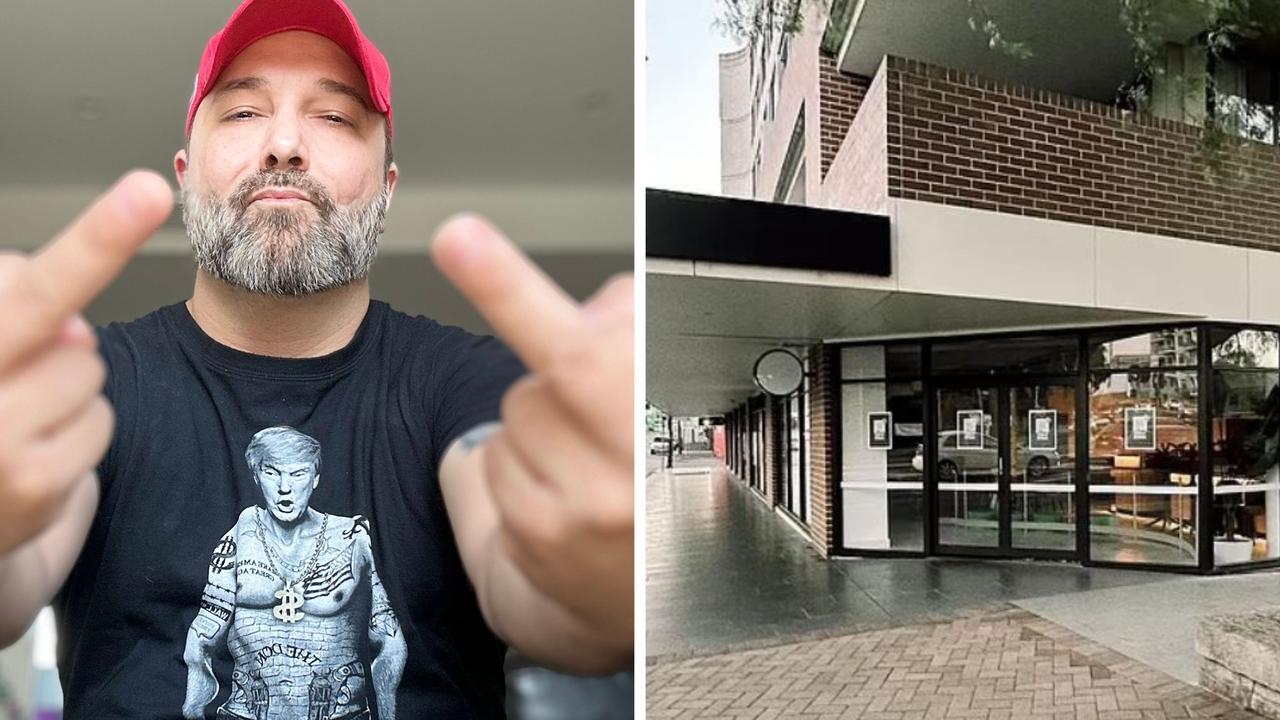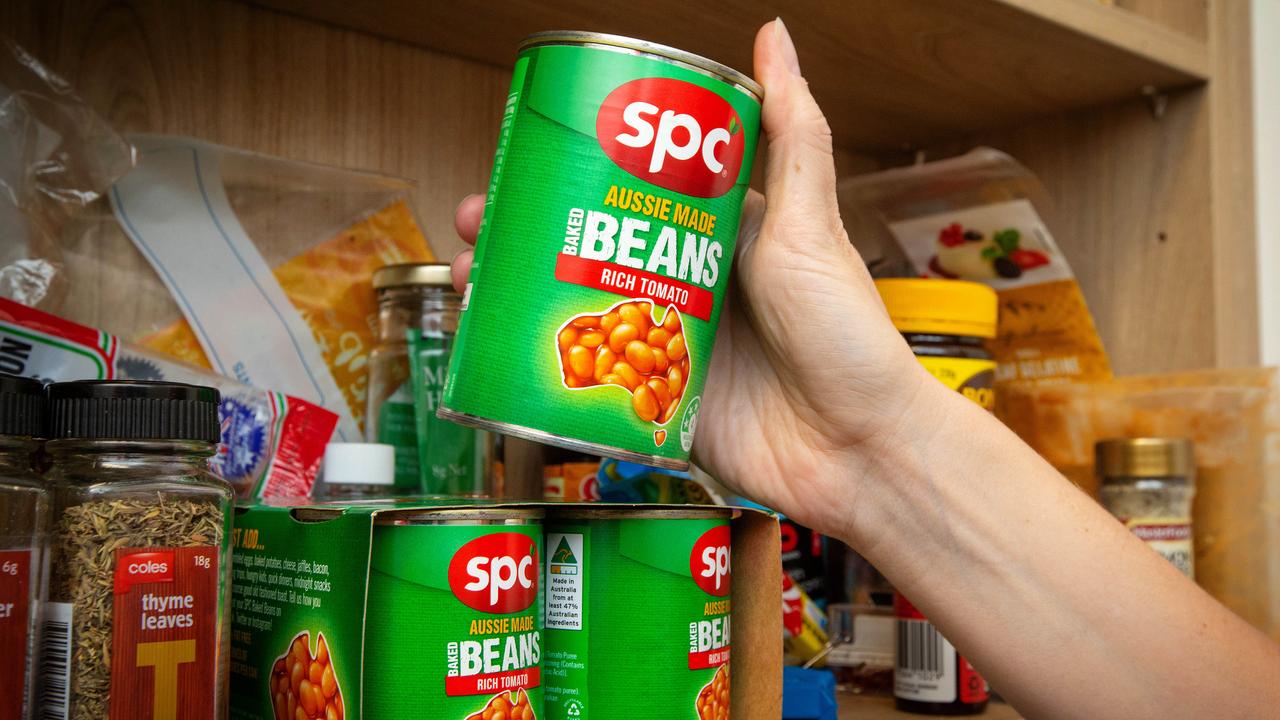Ed Harry menswear has become the latest victim of the struggling retail sector
UPDATE: Troubled menswear chain Ed Harry is set to close within weeks after failing to find a buyer.
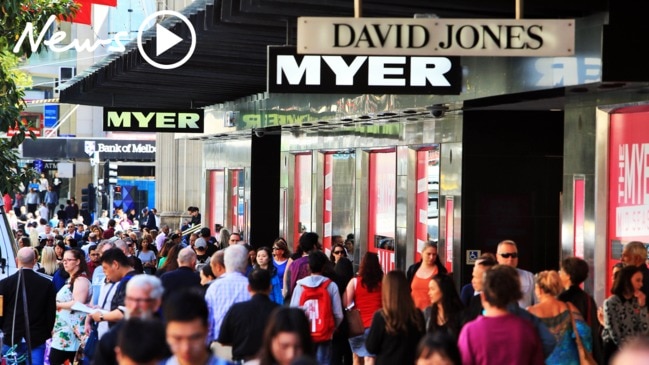
Last year was yet another dismal 12 months for the retail industry in Australia and just two weeks into 2019, Ed Harry has joined the long list of companies to pull up stumps.
Ed Harry's fate has been sealed, with the menswear chain now set to close after failing to secure a buyer.
The news was confirmed by administrators KPMG today, with all 87 outlets across the country expected to fold within six to eight weeks.
It means the retailer's 498 employees are now facing an uncertain future.
“Unfortunately, and despite having run a comprehensive sale of business campaign, there have been no viable offers received for the ongoing operations of the company,” KPMG's Brendan Richards said.
“As such, the administrators have no alternative other than to progress to an orderly wind-down of the company’s operations."
Last month KPMG’s Brendan Richards and Gayle Dickerson were appointed voluntary administrators after a “particularly tough” Christmas sales period for the chain, and mounting pressure from decreased shopping centre footfall.
The news follows the closure of a string of Australian retailers in recent times, including Marcs, Pumpkin Patch, Payless Shoes and Roger David, while department store Myer has also struggled.
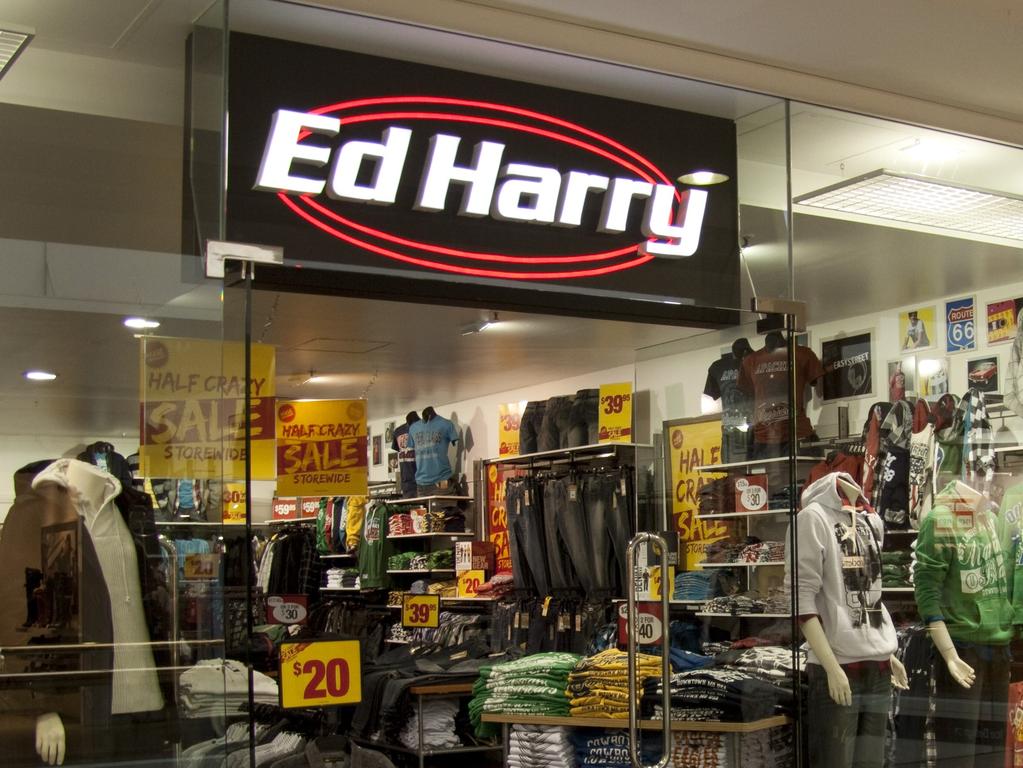
Ed Harry managing director David Clark said the business had been facing fierce retail competition for some time.
“While this was to be expected, the directors had been exploring options for funding to enable Ed Harry to continue to compete and grow, however to this point have been unsuccessful,” he said.
Established in 1993, and relaunched in 2011, Ed Harry operates 87 stores across all Australian mainland states and territories and employs 498 staff.
In the short-term the South Australia-based business will immediately embark on a clearance sale of existing merchandise to maximise options for the business.
KPMG said Ed Harry gift cards will be honoured for one month on a dollar-for-dollar basis only.
“Like many other Australian retailers, after a strong period of growth, it has faced a challenging environment over the past12 months — and a particularly tough Christmas sales period,” KPMG’s Brendan Richards said.
“It has also become clear that shopping centre footfall has been significantly weaker than expected.”
The first meeting of creditors of the company will be held in Adelaide on Thursday January 24.
Here’s a roundup of some of the most iconic brands lost in 2018.
MAGGIE T:
The plus-size womenswear brand was the first high-profile Australian retailer to enter administration in 2018 after announcing it would close in early January.
The label, which was founded in 1981 and fronted by Aussie TV personality Maggie Tabberer, collapsed into voluntary administration — but in March, Specialty Fashion Group revealed its acquisition of the company.

DIANA FERRARI:
Not long after, Australian footwear, clothing and accessories label Diana Ferrari revealed “at least four” of its 17 retail stores would be rebranded with the rest to close, with six clearance outlets to remain open.
MOUNTAIN DESIGNS:
In the same month, outdoor adventure gear company Mountain Designs made the “difficult decision” to close one in three stores in 2018.
Shops at Joondalup, Wagga Wagga, Toowong and Dubbo closed on January 7 followed by branches at Cannington, Bendigo, Toowoomba and Wollongong on January 10, with others at Pacific Fair, Ashmore, Bunbury, Moorabbin and Warringah also shutting.
GAP:
Next came Gap, which quietly bowed out of the Australian market in early February.
The US fashion giant was brought to Australia by luxury goods retailer Oroton — which narrowly avoided its own collapse late last year.
AVON:
Soon after, cosmetics brand Avon announced it would leave Australia and New Zealand “by the end of 2018”, leaving the company’s 220 staff and more than 21,400 representatives facing an uncertain future.
ESPRIT:
In early May, fashion retailer Esprit revealed it would close all 67 of its loss-making Australia and New Zealand stores as the Hong Kong-listed company shifted its focus to more profitable regions.

METALICUS:
Soon after, General Pants Group-owned Metalicus became the latest victim of our dire retail industry, emailing customers to announce it was entering voluntary administration.
DOUGHNUT TIME:
Earlier last year, fans of Doughnut Time were left devastated after the popular chain went into liquidation and closed stores around the country.
But in July, the brand rose from the ashes after being taken over by new owner Pete Andros who relaunched the chain and opened a raft of new stores.
ZUMBO PATISSERIE:
In early August, news broke dessert king Adriano Zumbo’s company had gone into voluntary administration.
However, administrators confirmed the eight Zumbo Patisserie shops across Sydney and Melbourne would continue to operate as normal.
TOYS R US:
The toy company finally closed down for good on August 5 after going into voluntary administration in May.
In July, administrators revealed all Toys R Us and Babies R Us stores across the country would fold, with around 700 jobs lost.
The announcement followed the failure of Toys R Us in the US in March.
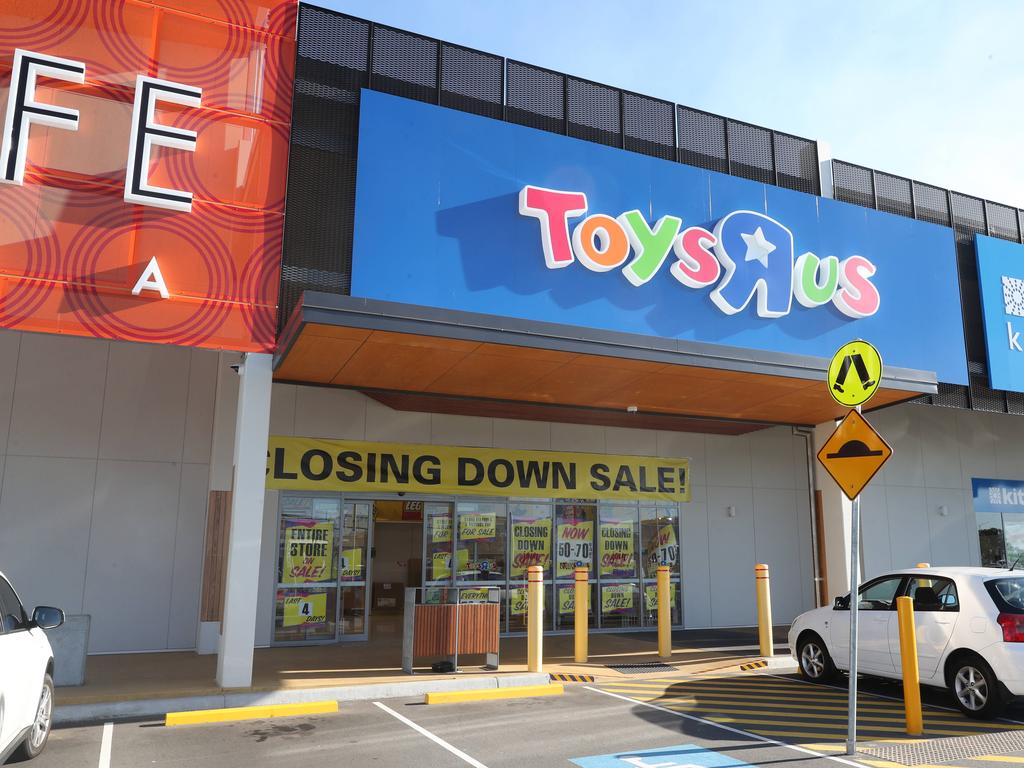
SHOES OF PREY:
Aussie footwear start-up Shoes of Prey, which was founded in 2009 by Jodie and Michael Fox and Mike Knapp, revealed it had ceased trading in a shock announcement posted to its website and on social media in August.
The company, which was initially a tearaway success, allowed shoppers to customise their own shoes via the company website, which were then delivered within a few weeks.
MAX BRENNER:
The popular chocolate chain announced it had gone into voluntary administration in early October.
It was then revealed Max Brenner had been rescued from liquidation by investment office Tozer & Co — but that deal ultimately fell through, plunging the brand into further uncertainty.
ROGER DAVID:
In November, the famous menswear label confirmed its 57 fashion and accessories stores would close within weeks after no buyers emerged in a four-week process to sell them as a going concern.
The business, which was placed in voluntary administration on October 18, employs 300 full-time people and almost 200 casuals and part-timers.
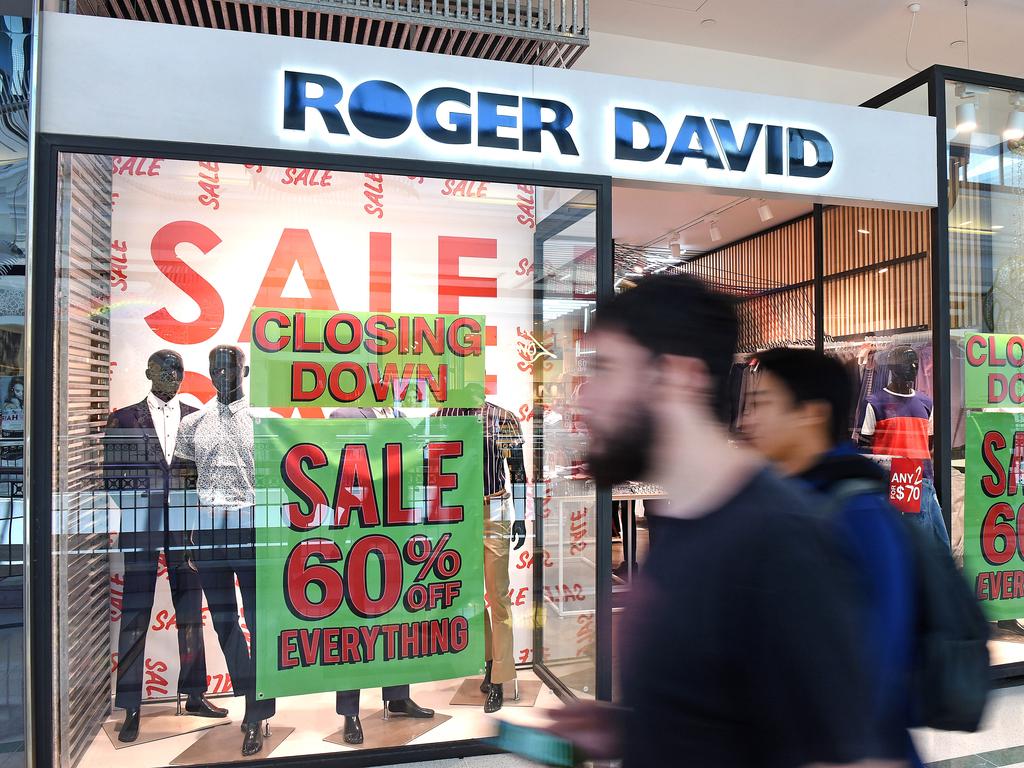
LAURA ASHLEY:
Finally, in early December, news broke that clothing and home furnishing group Laura Ashley had been placed in administration for a second time.
The retailer, which first entered administration in 2016, has 18 stores and 100 employees in Australia.
KordaMentha Restructuring said administrators’ priorities were to review the business, look for buyers for both merchandise and brand licence, and to clear as much stock in the lead-up to Christmas.
— With AAP
Continue the conversation @James_P_Hall | james.hall1@news.com.au

